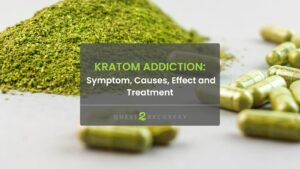Key Takeaway:
- Addiction recovery is a challenging journey that requires comprehensive support and strategies.
- Routine plays a vital role in addiction recovery, offering stability and predictability.
- A structured routine helps individuals rebuild self-discipline, stability, and a sense of purpose.
- Benefits of establishing a routine include physical and psychological stability, enhanced time management, and a renewed sense of purpose.
- Creating a personalized recovery routine tailored to individual needs is essential.
- Consistency in maintaining a routine is crucial to avoiding relapse and building trust in oneself.
- Accountability partners, support networks, and professional guidance can help individuals maintain consistency.
- Quest 2 Recovery is committed to providing guidance, support, and a supportive community for individuals on their addiction recovery journey.
- Taking action and seeking help is the first step towards embracing routine and transforming one’s life in addiction recovery
At Quest 2 Recovery, we understand that the journey to addiction recovery is a challenging and deeply personal one. Our commitment is unwavering when it comes to supporting individuals on their path to sobriety, offering a safe haven in the heart of California where transformation becomes possible. In this blog post, we delve into a crucial aspect of addiction recovery that often goes overlooked: the importance of routine.
When we think about addiction recovery, we often envision detoxification, therapy sessions, and the crucial process of healing the body and mind. While these elements are undoubtedly pivotal, it’s equally essential to recognize the role that daily routines play in this process. The routine may seem mundane, but it holds the power to transform lives and sustain recovery.

Understanding Addiction Recovery
To fully appreciate the value of routine in addiction recovery, we must first understand the complexities of addiction itself. Addiction is not just a habit; it’s a deeply ingrained pattern of behavior, often accompanied by physical and psychological dependence on a substance or behavior. It can disrupt every facet of a person’s life, leaving behind a trail of broken relationships, health issues, and emotional turmoil.
The process of addiction recovery is akin to rebuilding a life that has been shattered by addiction’s relentless grip. It involves not only overcoming the physical aspects of addiction but also addressing the underlying emotional and psychological triggers. It’s a journey of self-discovery, healing, and personal growth.
In this challenging terrain, routine serves as a guiding light. Addiction often thrives in chaos, where unpredictability reigns supreme. By contrast, a well-structured routine provides stability, predictability, and a sense of purpose, all of which are essential in the recovery process.
As individuals move through the stages of recovery, they often find that establishing a routine is like laying a solid foundation for a new life. It becomes a source of comfort, a way to regain control over one’s life, and a powerful tool for avoiding relapse.
In the sections that follow, we will delve deeper into why routine is indispensable in addiction recovery, the benefits it offers, and how to create a personalized routine tailored to your unique needs and goals.
The Role of Routine in Recovery
Routine, in its essence, is a set of habitual activities or practices that follow a regular pattern. While it might seem mundane, its significance in addiction recovery cannot be overstated. Here’s why:
- Stability Amidst Chaos: Addiction often leads to erratic lifestyles, marked by unpredictable highs and lows. In contrast, a daily routine offers stability. It provides a framework for organizing your day, making it easier to manage stress, anxiety, and cravings that can threaten your recovery journey.
- Rebuilding Discipline: Addiction can erode self-discipline and control. A well-structured routine helps in rebuilding these vital skills. It sets expectations for your day, requiring you to stick to commitments, whether it’s attending therapy, exercise, or meditation.
- Creating a Sober Environment: Your routine can help you distance yourself from triggers and temptations associated with substance abuse or addictive behaviors. It steers you toward healthier activities and environments, reducing the risk of relapse.
Benefits of Establishing a Routine
Now, let’s explore the multitude of benefits that establishing a routine can bring to your addiction recovery journey:
- Physical and Psychological Stability: Routine can stabilize your body and mind. Regular sleep patterns, healthy eating habits, and exercise promote physical well-being, while the predictability of daily activities reduces stress and anxiety.
- Sense of Purpose: Addiction often robs individuals of their sense of purpose. A daily routine reintroduces purpose into your life. It provides daily goals and achievements, no matter how small, which can boost self-esteem and motivation.
- Enhanced Time Management: Managing time effectively becomes crucial in recovery. A routine teaches you time management skills, enabling you to prioritize essential activities like therapy, support group meetings, and self-care.
Creating a Personalized Recovery Routine
Creating a personalized routine tailored to your unique needs is essential for a successful recovery. Here’s how to go about it:
- Assess Your Needs: Begin by evaluating your individual needs and goals in recovery. Consider factors like your work schedule, responsibilities, and personal preferences.
- Set Realistic Goals: Establish achievable daily and weekly goals. These can include exercise, meditation, therapy sessions, work or education commitments, and time for hobbies or interests.
- Incorporate Self-Care: Don’t forget the importance of self-care. Include time for relaxation, mindfulness, and activities that bring you joy and peace.
- Seek Professional Guidance: At Quest 2 Recovery, our expert counselors can assist you in designing a personalized routine that aligns with your recovery journey. They can help you identify triggers and challenges unique to your situation and provide guidance on managing them effectively.
Remember, the journey to recovery is highly individualized, and your routine should reflect that. It’s a tool to support your healing, providing structure and stability as you work toward a brighter, addiction-free future.
Maintaining Consistency
A well-structured routine is only as effective as its consistency. In the unpredictable journey of addiction recovery, maintaining consistency can be challenging but is absolutely essential. Here’s why:
- Avoiding Relapse: Consistency in your daily routine helps create a buffer against relapse. By sticking to your schedule, you reduce the likelihood of veering off the path of recovery when faced with triggers or stressors.
- Building Trust: Consistency not only fosters trust in yourself but also in your support system. It demonstrates your commitment to recovery, reinforcing the belief that lasting change is possible.
- Overcoming Challenges: Challenges are an inevitable part of recovery. A consistent routine equips you with the skills and resilience to face setbacks and continue moving forward.
Incorporating strategies to maintain consistency, such as accountability partners and regular check-ins with addiction specialists, can provide invaluable support in this aspect of your journey.
Accountability and Support
Addiction recovery is not a solitary endeavor; it thrives on the support and accountability of others:
- Accountability Partners: Having a trusted friend, family member, or sponsor who can hold you accountable for sticking to your routine is immensely beneficial. They can provide encouragement and a gentle push when needed.
- Support Networks: Joining support groups or attending group therapy sessions can connect you with individuals who understand the challenges of addiction recovery. Sharing experiences and receiving support from peers can be a powerful motivator.
- Quest 2 Recovery’s Support: At Quest 2 Recovery, we are more than just a treatment center; we are a community dedicated to your recovery. Our expert staff and support network are here to guide and empower you throughout your journey.
Embrace Routine, Transform Your Life
In conclusion, the importance of routine in addiction recovery cannot be overstated. It serves as a cornerstone, providing stability, purpose, and a sense of control in the midst of a tumultuous journey. By embracing routine, you’re not merely going through the motions; you’re actively reshaping your life.
At Quest 2 Recovery, we understand the unique challenges that addiction presents. We are committed to providing you with the tools, guidance, and support needed to establish and maintain a routine that supports your recovery journey. With consistency, accountability, and a personalized approach, lasting sobriety is within reach.
If you or a loved one is struggling with addiction, don’t hesitate to reach out for help. Quest 2 Recovery is here to assist you on your path to recovery. Contact us today to learn more about our addiction treatment programs, personalized routines, and the supportive community we offer. Your journey to a healthier, addiction-free life starts here
Some Facts About The Importance of Routine in Addiction Recovery: Structuring Your Day for Success:
- ✅ Establishing a routine can help reduce stress and anxiety in those recovering from addiction. (Source: Verywell Mind)
- ✅ A structured daily routine can provide a sense of stability and predictability during the recovery process. (Source: Addiction Center)
- ✅ Having a routine can help recovering addicts avoid triggers and develop healthy habits and coping mechanisms. (Source: The Recovery Village)
- ✅ Regular exercise, a healthy diet, and quality sleep are all important components of a successful daily routine for addiction recovery. (Source: American Addiction Centers)
- ✅ Keeping a schedule can also help individuals in recovery stay on track with important meetings, appointments, and therapy sessions. (Source: Psychology Today)
FAQs about The Importance Of Routine In Addiction Recovery: Structuring Your Day For Success
Why is routine important in addiction recovery?
Routine is important in addiction recovery because having a consistent routine can help individuals in recovery maintain structure and stability in their day-to-day lives. This can reduce stress and anxiety, prevent relapse, and promote overall well-being.
What are some benefits of structuring your day for success in addiction recovery?
Some benefits of structuring your day for success in addiction recovery are that it can help individuals in recovery establish healthy habits, stay focused on their goals, and feel a sense of purpose and achievement. It can also help them avoid triggers and boredom and improve their overall mental and physical health.
What are some tips for creating a successful routine in addiction recovery?
Some helpful tips for creating a successful routine in addiction recovery include setting realistic goals, allowing for flexibility, incorporating activities that promote relaxation and self-care, connecting with a support system, and consistently reassessing and adjusting the routine as needed.
How can a routine help prevent relapse in addiction recovery?
A routine can help prevent relapse in addiction recovery by avoiding triggers and making healthy choices. By keeping busy and engaged in positive activities, they can reduce the risk of succumbing to cravings or impulsivity and maintain their momentum towards recovery.
What are some common challenges that people face when creating a routine in addiction recovery?
Some common challenges that people face when creating a routine in addiction recovery include resistance to change, a lack of motivation or energy, difficulty prioritizing tasks, and feeling overwhelmed or stressed. It is important to address these challenges with compassion and patience and seek support from a therapist or recovery coach if needed.
How can incorporating mindfulness practice into a routine benefit addiction recovery?
By incorporating mindfulness practices into their daily routine, individuals in addiction recovery can improve their emotional regulation, reduce stress and anxiety, and develop a greater sense of self-awareness and self-compassion. This can help them stay centered and present, and make more intentional choices that support their recovery journey.











